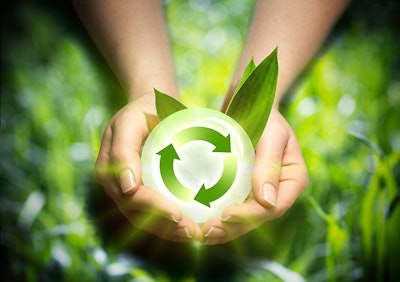
Chesapeake Utilities Corporation acquired Planet Found Energy Development (PFED) and its poultry litter waste management technology for $9.5 million.
“Chesapeake has the industry knowledge, energy delivery asset base and capital deployment appetite to play a leading role in the generation and delivery of biogas in its service territories. The acquisition included PFED’s anaerobic digestion and Nutrient Recovery Process Patent, which provides us internal technology expertise, especially related to organic soil conditioner and future fertilizer production, an important economic component in poultry waste biogas production,” Justin Stankiewicz, director of renewable gas (RNG) development, Chesapeake Utilities Company, said.
PFED, a Maryland-based entity, combines anaerobic digestion, solids separation and filtration technology to convert poultry litter and other organic waste into a renewable energy known as biogas, as well as a nutrient-rich soil conditioner, distributed as Element Soil.
Anaerobic digestion is a natural process that uses microorganisms to break down biodegradable material, such as livestock manure, municipal wastewater solids and food waste, in the absence of oxygen. Because it takes place in an entirely enclosed system that does not require any sort of combustion, anaerobic digestion is safer and more sustainable than current waste processing methods.
In addition, chicken litter is a convenient and inexpensive fertilizer source for many farmers.
“Due to its composition, poultry litter is notoriously difficult to successfully digest,” explained Stankiewicz. “Development of waste-to-energy has become a significant interest to energy delivery companies and their investors as a component of a lower carbon energy strategy.”
PFED’s technology recycles 1,200 tons of poultry litter annually.
“Chesapeake Utilities will use the small poultry biogas facility in Maryland as a test facility to help verify waste stream and fertilizer chemistry on future projects, useful in both financial projections and potential regulatory treatment. We believe this model can be replicated across our service territories and accelerates our efforts in converting poultry waste into renewable, sustainable energy,” Stankiewicz added.
















